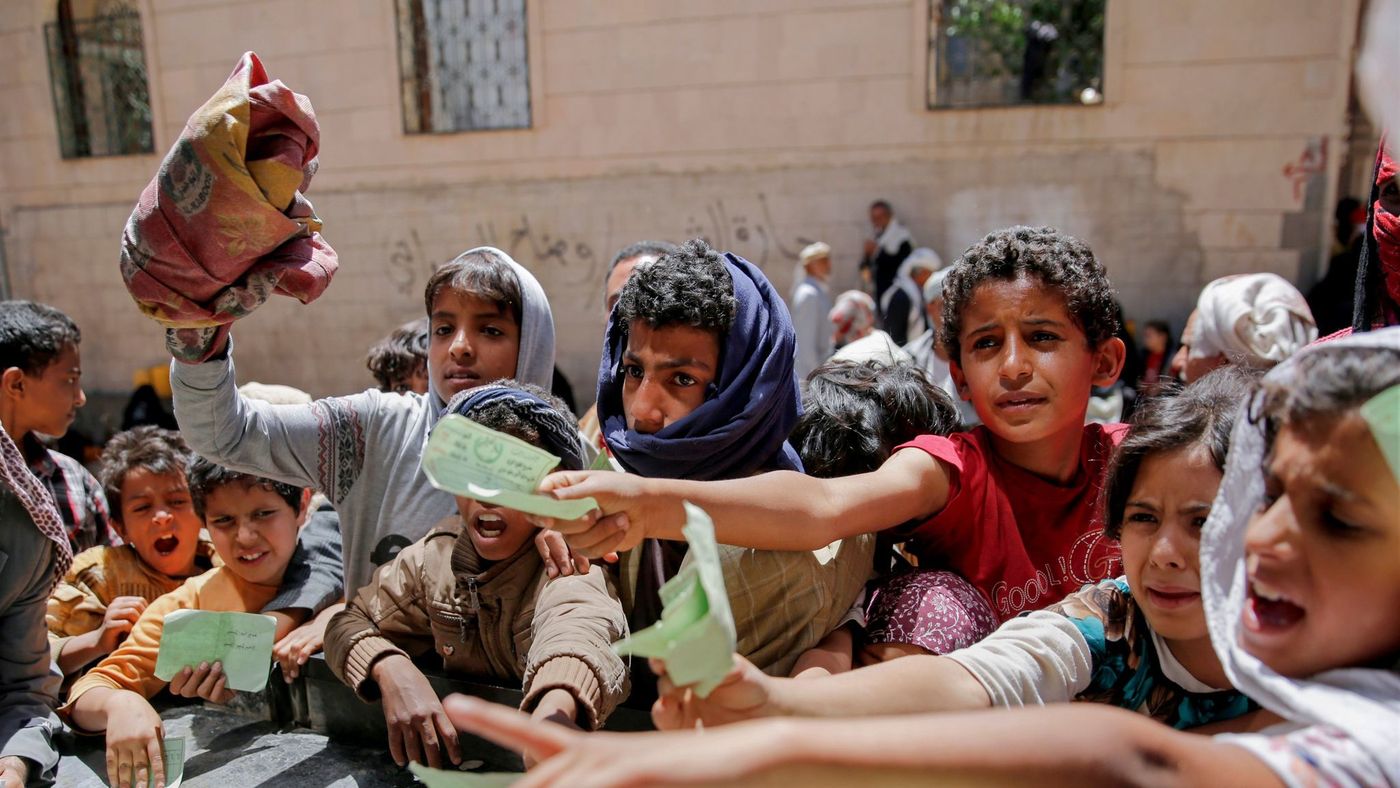On 4 October 2019, the Special Rapporteur on the right to food; Special Rapporteur on the right of everyone to the enjoyment of the highest attainable standard of physical and mental health; Independent Expert on the promotion of a democratic and equitable international order; and Special Rapporteur on the human rights to safe drinking water and sanitation sent an allegation letter addressed to Saudi Arabia regarding the adverse effects of international military intervention on human rights in Yemen.
In the letter, the Special Procedures offices noted that on 26 March 2015, a coalition of Gulf states led by Saudi Arabia launched air strikes, along with a campaign of economic separation, against Houthi-Saleh forces and targets in Yemen. The United States of America, along with United Kingdom and France, have supported coalition attacks by providing operational support, targeting intelligence and air refuelling. The incessant air strikes have hit hospitals, schools, and homes, and blockades have prevented vital humanitarian aid from reaching Yemeni civilians, generating, as described by the UN Office for the Coordination of Humanitarian Affairs, the most severe humanitarian crisis in the world.
In 2016 the United States reportedly conducted 35 strikes in Yemen, whilst in 2017 the number drastically rose to an estimated 130 air strikes. Furthermore, Armed Conflict Location & Event Project Data (ACLED) has stated that 2018 has been the most lethal year, with 30,800 people reported to have been killed directly through the ongoing conflict. Yemeni civilians have remained at the forefront of this conflict, as they continue to suffer from the lack of basic health, education, and economic services. Parties involved in the conflict have unlawfully obstructed the distribution of necessary humanitarian aid, and the coalition has conducted airstrikes which have killed thousands of civilians and civilian objects, which violates the laws of war.
International intervention has been a major catalyst to the mass outbreak of diseases, such as cholera, the destruction of infrastructure and the country´s economy and has led to significant food insecurity. The United Nations estimates that 80 percent of the population – 24.1 million people – are at risk of starvation and disease, whilst 14.3 million are in dire need of assistance. Furthermore, an approximate 17.8 million individuals are living without access to safe water and sanitation, and 19.7 million without appropriate healthcare, which directly infringes on fundamental human rights.
International humanitarian law enforces responsibilities upon parties taking part in armed conflict and states that remain outside of the conflict to facilitate with humanitarian assistance. The Special Procedures offices noted United Nations resolution 2417, which was implemented unanimously in 2018, which urged all parties involved in armed conflicts to protect civilians and civilian objects, and agreed that unlawful deprivation of access to objects and aid, crucial to their survival, is strongly condemned. Moreover, offices noted that the right to safe drinking water and sanitation has been identified by the Human Rights Council and by the UN General Assembly, which continues to be violated as air strikes target civilian objects. Additionally, the Vienna Declaration states that the denial of the right to self-determination directly violates human rights, and the offices noted the allegation that the prolonged conflict prevents and undermines the possibility of Yemeni civilians to form a lawfully elected government.
The UN Special Procedures called upon Saudi Arabia to comment on the ongoing human rights violations in Yemen, and to clarify what measures are being taken to protect and respect human rights in Yemen. Furthermore, the UN Special Procedures urged the Saudi Government to clarify steps that have been ensured for Yemeni civilians to have access to water, medicines, fuel, food, and other necessitates. Lastly, the letter calls upon Saudi Arabia to provide details on policies, legislations, and regulations that have been implemented to prevent human rights abuses from occurring and to punish those who are responsible.





